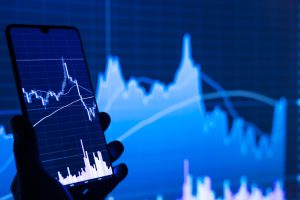Understanding the Forex Market: Key Players and Their Roles
The foreign exchange market, also known as the forex market, is the largest and most liquid financial market in the world. With a daily trading volume of over $6 trillion, it provides ample opportunities for traders to profit from currency fluctuations. However, to navigate this complex market successfully, it is essential to understand the key players and their roles. In this article, we will explore the various participants in the forex market and how they impact currency prices.
1. Central Banks:
Central banks play a crucial role in the forex market. They are responsible for implementing monetary policies to control inflation, stabilize the economy, and maintain currency stability. Central banks achieve these objectives by adjusting interest rates, intervening in the foreign exchange market, and managing their foreign exchange reserves. Their actions can have a significant impact on currency values. For example, if a central bank raises interest rates, it makes the currency more attractive to investors, leading to an appreciation in its value.
2. Commercial Banks:
Commercial banks are the primary participants in the forex market. They facilitate transactions on behalf of their clients, including individuals, corporations, and other financial institutions. Commercial banks provide liquidity to the market by offering competitive bid and ask prices for currencies. They also engage in proprietary trading to capitalize on currency movements. Additionally, commercial banks play a role in influencing exchange rates through their foreign exchange operations.
3. Hedge Funds:
Hedge funds are large investment funds that employ various strategies to generate significant returns. They are active participants in the forex market due to its high liquidity and volatility. Hedge funds use sophisticated trading techniques, such as algorithmic trading and high-frequency trading, to exploit short-term price movements. Their substantial trading volumes can impact currency prices, especially in the case of smaller currencies or during periods of low market liquidity.
4. Institutional Investors:
Institutional investors, such as pension funds, insurance companies, and mutual funds, are significant players in the forex market. These entities manage large portfolios on behalf of their clients and seek to diversify their investments across different asset classes, including currencies. Institutional investors often take long-term positions in currencies based on fundamental analysis and macroeconomic factors. Their trading activities can influence exchange rates, particularly when they make substantial investments in a particular currency.
5. Retail Traders:
Retail traders are individual participants in the forex market who trade for their own accounts. With the advent of online trading platforms, retail traders now have access to the same financial instruments and market data as institutional players. Retail traders typically engage in speculative trading, aiming to profit from short-term price movements. However, due to their smaller trading volumes, individual retail traders have limited impact on overall market dynamics.
6. Brokers:
Forex brokers act as intermediaries between retail traders and the forex market. They provide trading platforms, leverage, and access to real-time market prices. Brokers earn revenue through spreads, which are the differences between the bid and ask prices. As the number of retail traders has increased, brokers have become essential players in the forex market, offering educational resources, market analysis, and other services to attract and retain clients.
7. Market Makers:
Market makers are financial institutions, usually large banks, that provide liquidity to the forex market. They continuously quote bid and ask prices for currency pairs, ensuring that there is always a buyer or seller available. Market makers profit from the spread and seek to manage their exposure by hedging their positions. While market makers play an important role in maintaining market liquidity, they can also influence prices through their trading activities.
Understanding the key players in the forex market is essential for any trader looking to navigate this vast and dynamic market successfully. Each participant brings their unique perspectives, strategies, and trading volumes, which collectively determine currency prices. By comprehending the roles and actions of central banks, commercial banks, hedge funds, institutional investors, retail traders, brokers, and market makers, traders can make more informed decisions and capitalize on opportunities in the forex market.


